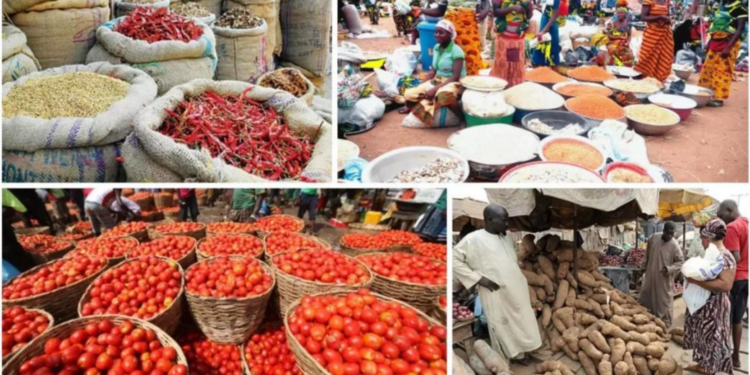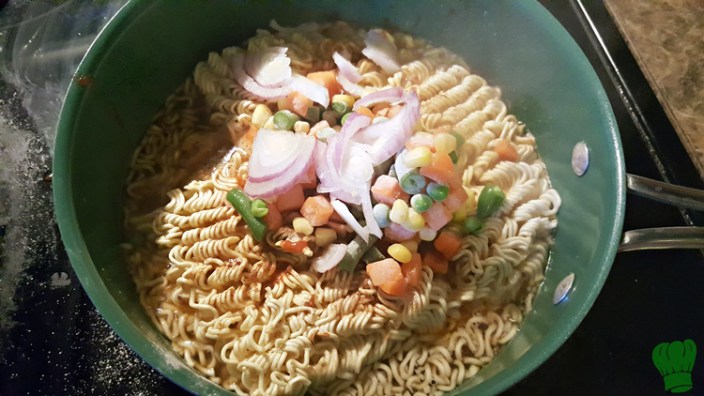A very popular riddle suggests that age is the only thing that consistently goes up and never comes down.
However, in the last couple of years, we have witnessed a staggering rise in the prices of goods and services across board, and there is seemingly no end in sight.
Prices are continuously soaring across various industries, spanning from consumer goods to luxury items, entertainment and even basic human necessities like water.
Let’s start with the basics – food. A 50kg bag of foreign rice has gone up 83% in the last year, from N42,000 at the end of Q1 2023, to N77,000 at the end of Q1 2024.
Unfortunately, going local will not make much of a difference and save you from paying more, as statistics from the NBS also show that the local brand of rice went up 75.6% in the same period, from N30,000 to N52,670 for the same 50kg bag of rice.
Within the same timeframe, a pack of Indomie noodles has almost doubled in price, going from N4,000 in Q1 2023 to N7,670 in Q1 2024; while the super pack has gone up 105% from N7,500 in Q1 2023 to N15,400 in Q1 2024. Pasta prices surged by a whopping 81%, from N8200 to N14,850, while a single unit of regular pasta went from N500 to N750 (50%).
Similarly, the cost of tinned tomatoes, onions, chicken, and even essential items like vegetable oil and bread have seen significant increases.
Between Q 2023 and Q1 2024, the price of a tin of tomatoes has surged by an average of over 57.4%. A 400g tin of tomatoes has risen from N2,700 to N4,850, while the 210g tin now sells for N770 in Q1 2024, up from N500 in Q1 2023. The 70g tin increased from N185 to N270 in Q1 2024.
A 4-litre container of onion bulbs sold for N2,200 in Q1 2023, but now it’s priced at N4,350 by the end of Q1 2024, marking a staggering 97% price increase. The price of full-size chicken increased by 54%, rising from N6,500 to N10,000, while a kilogram of frozen chicken went up from N3,200 to N4,000.
On average across brands, 5 litres of vegetable oil surged by more than half, moving from about N8,350 to N13,000. Similarly, the 90cl of vegetable oil experienced a notable increase of about 30.6%, rising from N1,800 to N2,350 over the twelve months between Q1 2023 and Q1 2024.
Something as common as bread, which some may have described as labourers’ meal, especially when matched with a cold bottle of soda, has gone up 81% YoY.
A loaf of bread went from N800 in Q1 2023 to N1,450 in Q1 2024. Even a 50cl PET bottle of Coca-Cola has doubled from N200 in Q1 2023 to N400 in Q1 2024.
Relaxing in a bar with friends after a hard day’s work is now becoming a luxury. A bottle of Guinness Stout has increased from N700 to N1,500, marking a massive 114% increase. Similarly, a bottle of Star beer, which was priced at N700 last year, now sells for N1,200, representing a 71% increase.
Both DStv and Startimes packages have experienced a significant price hike. On average, DStv packages have increased by approximately 39.95%, while Startimes packages have risen by about 39.4%.
Fuel prices have surged by an astonishing 160% from N261 in Q1 2023 to N681 in Q1 2024. This surge has directly affected transportation costs as well. For example, a distance of 2.5km that would have cost an average of N225 in Q1 2023 now costs as much as N400, reflecting at least a 77% growth.
The rising trend isn’t limited to food items; toiletry prices have also surged. Dettol soap, for example, has increased from N500 to N800 within a year, marking a 60% rise. Similarly, the locally made Dudu Osun soap has skyrocketed from N500 to N1,400 per tablet, reflecting a 180% growth.
Even the cost of essential items like tissue paper has more than doubled in the last year. Sanitary pads have seen a significant increase as well, with the cheapest packs rising from N350 in Q1 2023 to N800 in Q1 2024, representing a 128% hike.
Moreover, the price of a 250ml deodorant rose by approximately 16%, climbing from N2,000 in Q1 2023 to N2,333 in Q1 2024.
Moving on to the most basic necessity—water, the price of a bag of sachet water has doubled from about N200 in Q1 2023 to N400 in Q1 2024. Similarly, a pack of 50cl bottled water, containing 12 units, sold for N1,500 in Q1 2023, but by Q1 2024, it was selling for N1,833. This reflects a 22% price increase, which, considering the rising rates across other commodities, may seem relatively “fair.”
As we observe these price increases across essential goods and services, the question on everyone’s lips is, ‘How is the average Nigerian coping?’
With businesses laying off staff due to economic downturns and multinational companies closing operations, the situation becomes even more dire.
Rising production costs are compelling companies to pass these expenses onto consumers through higher prices. With less purchasing power in the hands of Nigerians, consumers are forced to cut their expenses even further. Consequently, companies experience reduced sales and pay lower taxes.
This situation has adverse effects on all involved, with no winners overall. While increasing the minimum wage can boost consumers’ purchasing power, it doesn’t directly suppress inflation. Addressing the root causes of inflation is crucial.
The Global Inflation Tracker has reported a significant increase in median global inflation, from 1.9% to 8.8%, between the third quarters of 2020 and 2022. This suggests a global issue that needs attention.
The Nigerian government can address the underlying issues that are causing the inflation of prices for goods and services. This is a crucial moment for the government to intervene and resolve the situation.
Rather than solely admonishing businesses against price increases, the government can tackle inflation by stabilizing the exchange rate and working alongside pertinent stakeholders to devise a holistic strategy for fostering long-term economic growth and stability.


















